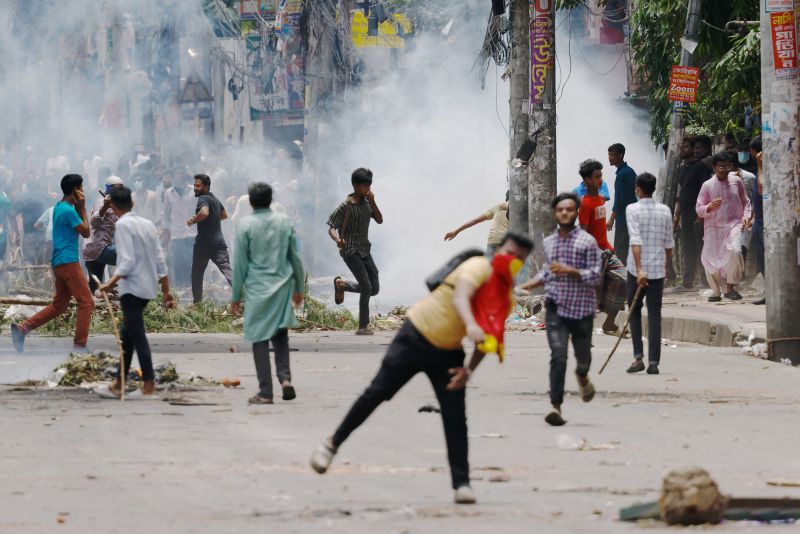
Bangladesh’s High Court Cuts Job Quotas Amid Deadly Protests: Local Media
In a recent turn of events, Bangladesh’s top court has made the decision to roll back some job quotas following intense protests that resulted in casualties. The move comes after weeks of demonstrations both on the streets and online, amid growing tensions over the allocation of government positions.
The High Court has decided to reduce the quota for family members of freedom fighters from 30% to 10%, and for ethnic minorities from 10% to 4%. This decision marks a significant shift in the government’s long-standing policy of providing job opportunities through quotas. The court’s ruling is seen as an attempt to address the concerns raised by protesters who argue that the current system disadvantages merit-based candidates.
The protests initially erupted in response to a leaked government report that allegedly detailed widespread corruption in the recruitment process. The report suggested that individuals were obtaining jobs through fraudulent means, bypassing the quota system that was originally intended to benefit marginalized groups.
The court’s decision has sparked mixed reactions among the public. While some view it as a positive step towards promoting fairness and transparency in the recruitment process, others fear that it may further exacerbate existing inequalities. Critics argue that reducing quotas could limit opportunities for historically marginalized groups and perpetuate socio-economic disparities.
The government has expressed its commitment to implementing the court’s decision while also assuring that the interests of all stakeholders will be taken into consideration. Officials have emphasized the need to strike a balance between meritocracy and social justice to ensure a level playing field for all job applicants.
Moving forward, it is essential for the government to engage in constructive dialogue with all parties involved to address the root causes of the protests. Implementing effective measures to prevent corruption and promote accountability in the recruitment process will be crucial in rebuilding public trust and confidence in the system.
Overall, the decision to roll back some job quotas by Bangladesh’s top court marks a significant development in the ongoing debate over affirmative action policies. It highlights the complexities and challenges associated with ensuring equal opportunities for all citizens while also addressing historical injustices. As the country navigates these issues, it is imperative to prioritize inclusive and sustainable solutions that promote social equity and merit-based selection processes.
